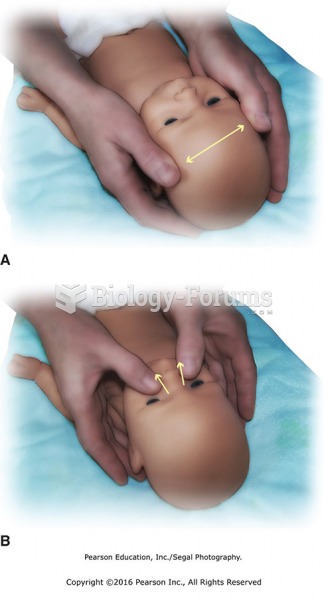This topic contains a solution. Click here to go to the answer
|
|
|
Did you know?
Aspirin may benefit 11 different cancers, including those of the colon, pancreas, lungs, prostate, breasts, and leukemia.
Did you know?
Pope Sylvester II tried to introduce Arabic numbers into Europe between the years 999 and 1003, but their use did not catch on for a few more centuries, and Roman numerals continued to be the primary number system.
Did you know?
Elderly adults are living longer, and causes of death are shifting. At the same time, autopsy rates are at or near their lowest in history.
Did you know?
It is believed that humans initially contracted crabs from gorillas about 3 million years ago from either sleeping in gorilla nests or eating the apes.
Did you know?
Alcohol acts as a diuretic. Eight ounces of water is needed to metabolize just 1 ounce of alcohol.
 Nose, nasal cavity, and pharynx: (A) nasal cartilages and external structure; (B) meatus and positio
Nose, nasal cavity, and pharynx: (A) nasal cartilages and external structure; (B) meatus and positio
 Hemodialysis. The process of hemodialysis replaces the kidney function of blood filtration by forcin
Hemodialysis. The process of hemodialysis replaces the kidney function of blood filtration by forcin





